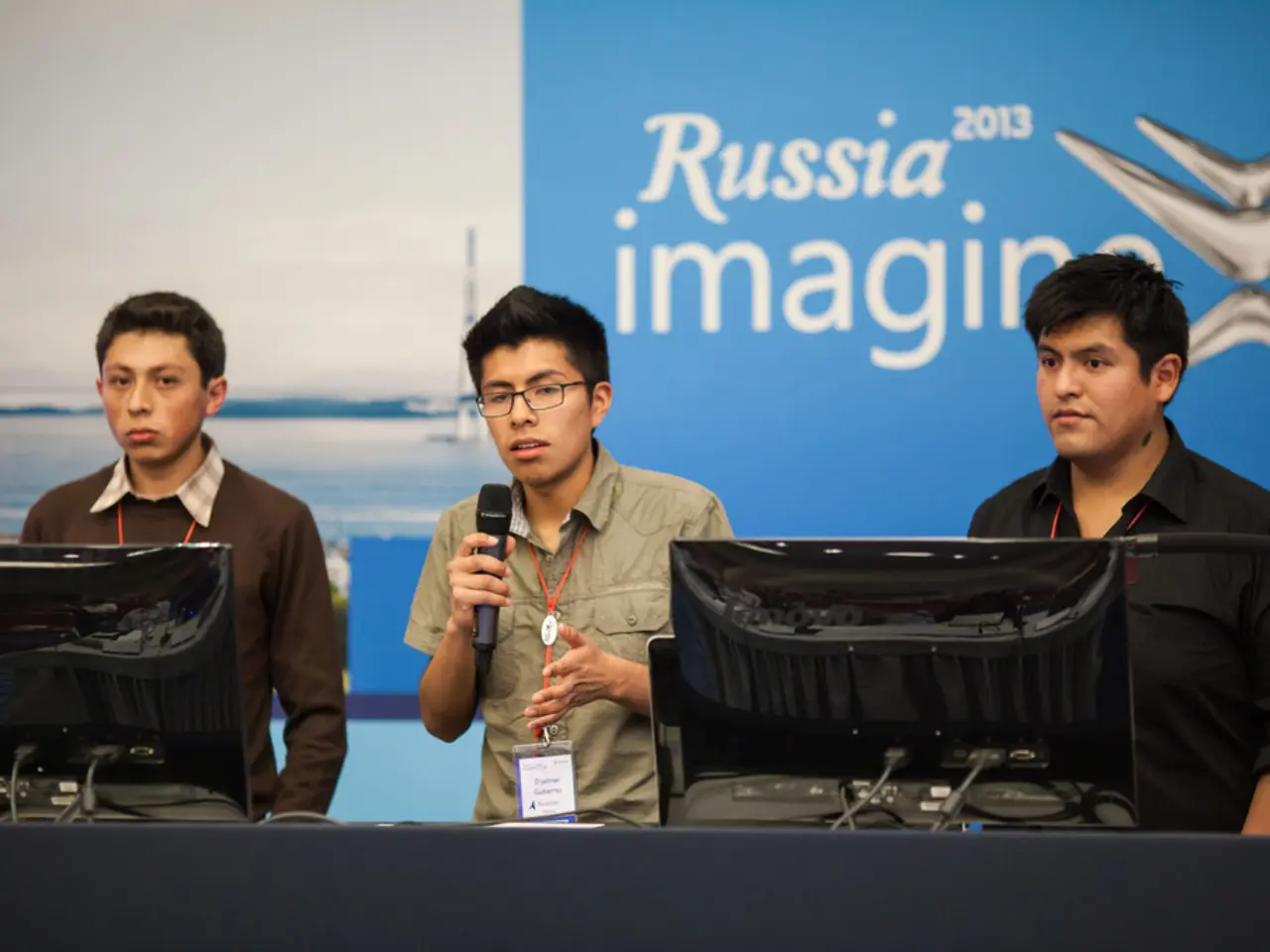Meta's High-Level Artificial Intelligence Facilities Detailed
In a groundbreaking move, Meta, the tech giant behind Facebook, Instagram, and Meta Quest, has launched Meta Superintelligence Labs (MSL), a new division dedicated to developing artificial intelligence (AI) systems with advanced reasoning capabilities. This ambitious project, one of the most significant organizational shifts in the AI industry, could shape the development and deployment of artificial general intelligence in the coming years.
MSL, headquartered at Meta's Menlo Park headquarters, brings together various AI research teams under one roof, merging the talents of FAIR and LLaMA developers. The division is backed by powerful supercomputing infrastructure, marking a significant investment in AI research and infrastructure.
The formation of MSL represents a strategic shift for Meta, positioning it as a leader in the pursuit of superintelligent AI. This move challenges other tech giants such as Google and OpenAI, increasing competition in the AI sector.
Meta's aggressive recruitment strategy, led by Mark Zuckerberg, has intensified the "AI talent war," attracting top researchers from OpenAI, DeepMind, and Anthropic. Compensation packages offered to these researchers range from $100 million to $450 million over four years, reflecting the company's commitment to securing the best minds in AI development.
The primary goal of MSL is to develop AI systems with capabilities bordering on superintelligence, moving beyond current language models to solve real-world reasoning problems. The division is focused on creating models that understand context, adapt to changing inputs, and solve complex tasks without retraining. This involves advancing LLaMA models while developing next-generation AI systems.
MSL's strategic goals also include delivering AI assistants that exceed human capabilities, leveraging Meta's massive infrastructure investment, deep integration across its 3+ billion user ecosystem, and continuing an open-source approach with Llama while pursuing AGI.
The division aims to integrate its AI advancements into practical applications across Meta's platforms, enhancing user experiences through more intelligent algorithms in virtual assistants, personalized recommendations, and advanced AR/VR features.
The competitive approach of MSL has not gone unnoticed, with OpenAI's lead in reasoning models highlighted. However, Anthropic's safety-focused approach is not mentioned in the current paragraph.
Growing competition from Chinese labs like DeepSeek is noted. The majority of hires (11) came from OpenAI, suggesting targeted poaching. Notable hires include Joel Pobar and Shengjia Zhao from Anthropic, Trapit Bansal, Shuchao Bi, Huiwen Chang, Ji Lin, Hongyu Ren, Jiahui Yu, Shengjia Zhao, Lucas Beyer, Alexander Kolesnikov, and Xiaohua Zhai from OpenAI, Jack Rae, Pei Sun, and an unnamed researcher from Google/DeepMind, and Johan Schalkwyk from other companies.
The formation of MSL signals Meta's transformation from a social media company with AI features to a dedicated AI research powerhouse competing for superintelligence leadership. OpenAI leadership has expressed that Meta's approach could create "deep cultural problems."
Overall, Meta Superintelligence Labs represents a significant escalation in the AI arms race, directly challenging other AI companies. The implications for the development and deployment of artificial general intelligence in the coming years are vast, making this a pivotal moment in the AI industry.
- Meta's new division, Meta Superintelligence Labs (MSL), is dedicated to developing advanced AI systems, marking a significant investment in both AI research and infrastructure.
- MSL, headquartered at Meta's Menlo Park headquarters, unites various AI research teams, bringing together talents from FAIR and LLaMA developers.
- The strategic shift towards superintelligent AI, led by Mark Zuckerberg, places Meta as a competitor against tech giants such as Google and OpenAI.
- Meta's aggressive recruitment strategy has attracted top AI researchers, offering them lucrative compensation packages ranging from $100 million to $450 million over four years.
- MSL's primary goal is to develop AI systems with capabilities bordering on superintelligence, focusing on context understanding, adaptation to changing inputs, and solving complex tasks without requiring retraining.
- The division aims to deliver AI assistants that exceed human capabilities, leveraging Meta's massive infrastructure investment, deep integration across its user ecosystem, and an open-source approach with Llama while pursuing AGI.
- The advancements made by MSL will be integrated into practical applications, enhancing user experiences on Meta's platforms through more intelligent algorithms, virtual assistants, and advanced AR/VR features.
- This competitive approach of MSL signals Meta's transformation from a social media company to a dedicated AI research powerhouse, potentially creating "deep cultural problems" according to OpenAI leadership, and escalating the AI arms race in the industry.




